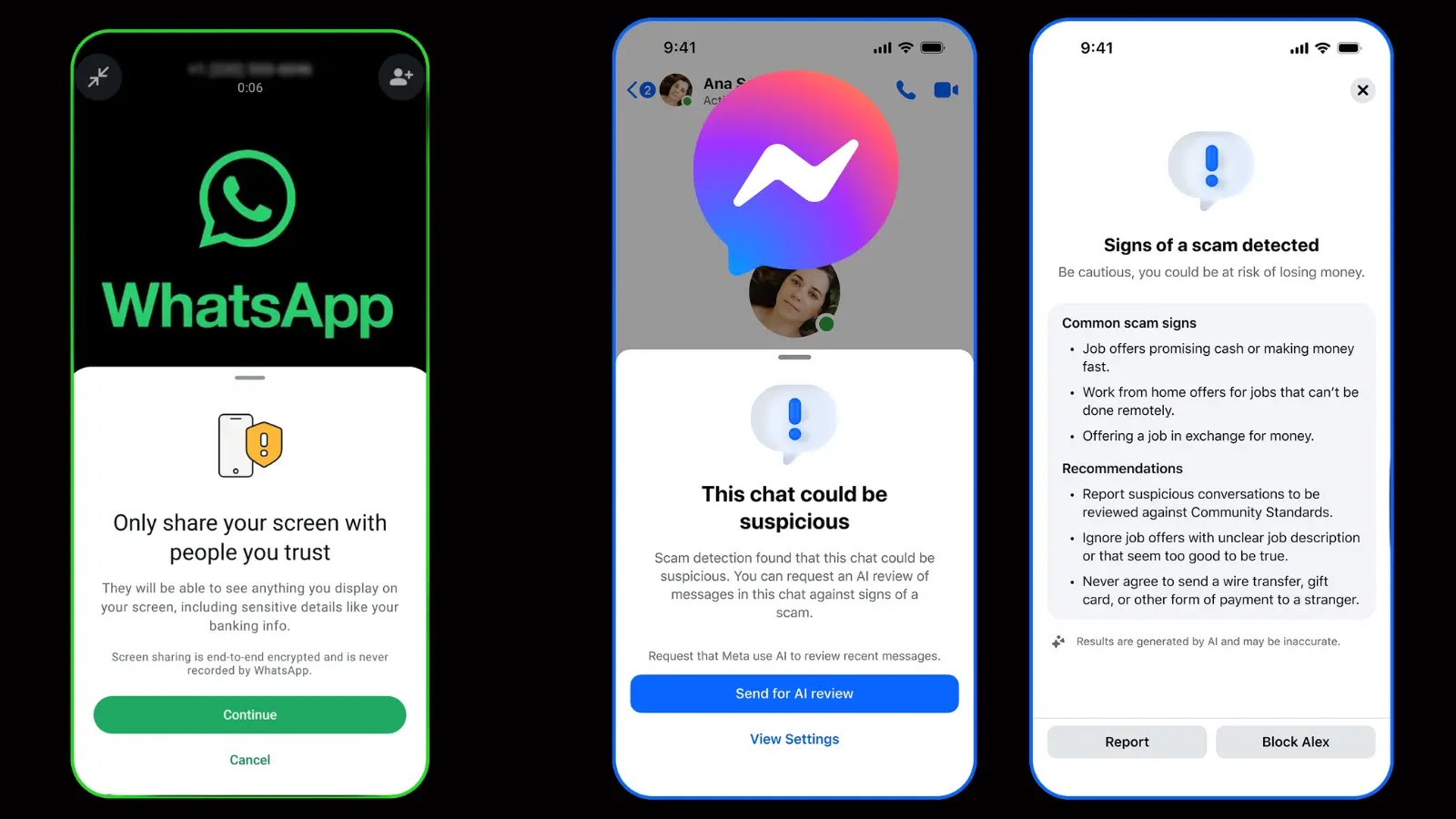
Meta Launches New Tools to Protect Messenger and WhatsApp Users from Scammers
Combating the Scourge of Scams: Meta Bolsters Messenger and WhatsApp Security
In an era where digital communication is foundational, the integrity and security of our messaging platforms are paramount. Scammers relentlessly exploit these channels, often targeting vulnerable populations like older adults, with increasingly sophisticated tactics. Recognizing this pervasive threat, Meta has recently unveiled a suite of innovative tools aimed at fortifying Messenger and WhatsApp against these malicious actors. This significant update, timed with Cybersecurity Awareness Month, marks a proactive stride in safeguarding user privacy and financial well-being.
Real-time Threat Detection and Enhanced Account Protections
The core of Meta’s new initiative lies in its enhanced capabilities for real-time threat detection. These tools are designed to identify and flag suspicious activity as it occurs, providing an immediate layer of defense against potential scams. This predictive and reactive approach is crucial in a landscape where scam methodologies evolve rapidly. By analyzing patterns and behaviors, the systems can distinguish legitimate interactions from those attempting to defraud users.
Beyond detection, Meta is also empowering users with more robust account protections. While specific details on every feature were not immediately released, the general thrust indicates a focus on user control and awareness. This could encompass more intuitive reporting mechanisms, stronger authentication prompts for unusual activity, and clearer indicators of potential scam attempts within the app interface itself. Such measures are vital in building user confidence and equipping them with the knowledge to make informed decisions about who they interact with and what information they share.
The Growing Need for Proactive Security Measures
The urgency behind Meta’s updates is underscored by the escalating rate at which scammers leverage messaging applications and social media platforms. These platforms offer a unique blend of intimacy and accessibility, making them ideal hunting grounds for fraudsters. Scams can range from phishing attempts to social engineering schemes, all designed to extract personal information, financial details, or direct monetary transfers. The financial and emotional toll on victims can be devastating, further emphasizing the critical need for proactive security measures from platform providers.
While this particular announcement doesn’t directly address a specific CVE, the tools are inherently designed to mitigate the impact of various social engineering weaknesses that often underpin scam campaigns. For instance, the real-time detection could help identify messages containing elements often found in phishing attacks, thereby reducing the success rate of tactics that exploit human vulnerabilities rather than software flaws like CVE-2023-XXXXX (placeholder for a hypothetical future social engineering-related CVE if one surfaces).
Remediation Actions for Users
While Meta is enhancing its defenses, users remain the first and most important line of defense against scams. Here are crucial remediation actions to protect yourself and your loved ones on Messenger and WhatsApp:
- Enable Two-Factor Authentication (2FA): This adds an essential layer of security. Even if a scammer obtains your password, they won’t be able to access your account without the second factor.
- Be Skeptical of Unsolicited Messages: Treat unexpected messages, especially those requesting personal information or money, with extreme caution. Verify the sender’s identity through an alternative, trusted method before responding.
- Report Suspicious Activity: Utilize the in-app reporting features for any messages or profiles that appear to be scams. Your reports help Meta improve its detection algorithms.
- Educate Yourself and Others: Stay informed about common scam tactics. Share this knowledge with friends and family, particularly older adults, who are frequently targeted.
- Never Click Suspicious Links: Malicious links can lead to phishing sites or download malware. Always hover over links to see the URL before clicking, and if in doubt, avoid clicking altogether.
- Verify “Urgent” Requests: Scammers often create a sense of urgency to pressure victims into making hasty decisions. Take a moment to pause and verify any urgent requests, especially if they involve money.
The Path Forward: A Collaborative Security Landscape
Meta’s commitment to protecting its vast user base is a positive development in the ongoing fight against digital fraud. These new tools represent a crucial step, but cybersecurity is a collaborative endeavor. Platform providers, security researchers, and individual users all play a vital role in creating a safer online environment. As scammers continue to adapt, so too must our defenses. Continuous innovation in threat detection, coupled with robust user education, forms the bedrock of effective digital security.





